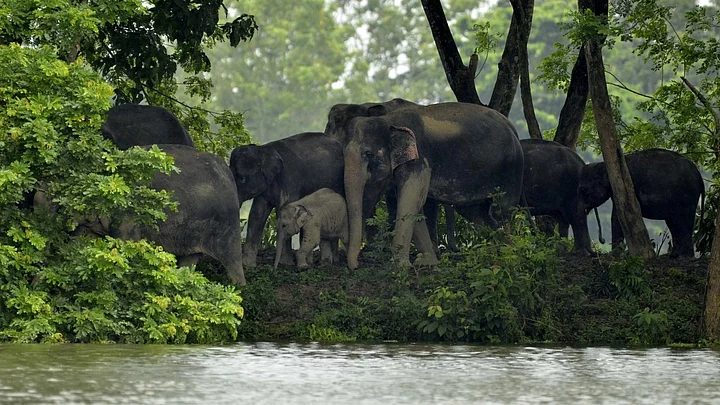The Rajya Sabha, on 8 December, passed the heavily controverted Wild Life (Protection) Amendment Bill, 2022 (WLPA). The Bill has been largely criticised by wildlife experts and activists due to the threat the new amendments pose towards wild elephants.
The bill was passed in the Lok Sabha earlier this year on 3 August 2022. It seeks to aid the government in fulfilling its obligation towards protecting endangered species by implementing the provisions under the Convention of International Trade in Endangered Species of Wild Fauna and Flora (CITES).
New Amendments Add the Threat of Illegal Elephant Capture
The most heavily criticised amendment was made to Section 43, specifically concerning elephants that come under Schedule I of the WLPA. The Section allows for people to own elephants to be used for "religious or any other purposes".
Outrage from conservationists comes due to vagueness of the clause "any other purposes," which could allow for any amount of loopholes in the treatment of elephants which are a protected species. This would also increase the demand for illegal capture of wild elephants.
Despite contestation from wildlife experts and activists, the bill was nonetheless passed to the upper house of the parliament.
"Provided that the transfer or transport of a captive elephant for a religious or any other purpose by a person having a valid certificate of ownership shall be subject to such terms and conditions as may be prescribed by the Central Government."Section 43(2), Wildlife (Protection) Amendment Bill 2021
Management Authority to Regulate Species Trade
The Bill provides the central government with the ability to allocate authority which grants the export and import licenses for trading specimens. Section 49E of the new amendments propose a Management Authority that will be responsible for issuing permits related to trading specimens in accordance with the CITES guidelines.
Another amendment, Section 48F grants power to the Union Ministry to designate institutes working on research related to wildlife as Scientific Authority to aid and advise the Management Authority export permits granted for the trade of specimens that come under Schedule IV.
Schedule IV is a category of animals that are considered a protected species. Illegal capture and trade of these animals, however, is punishable by the government.
(Our on-ground climate journalism needs your insights, ideas, and financial support - as we cover the biggest crisis of our times. Become a Q-Insider so we can bring more such stories to light.)
